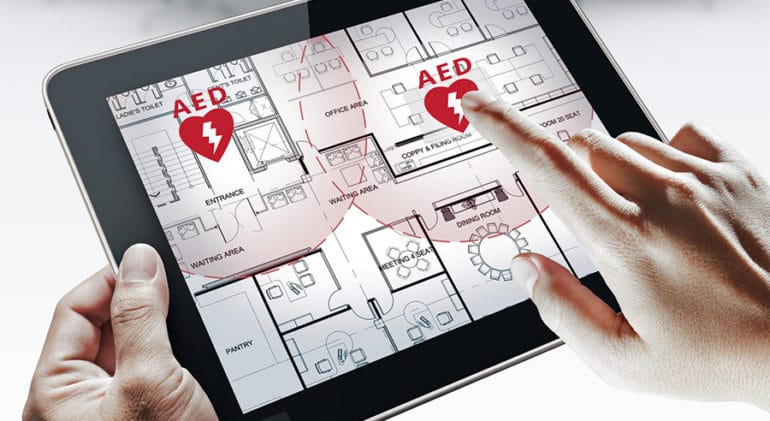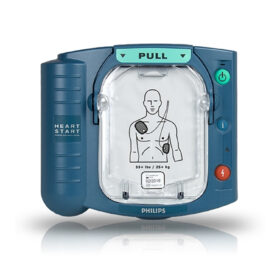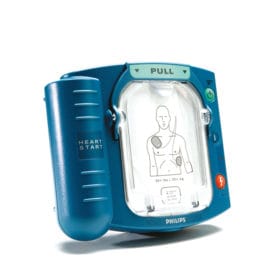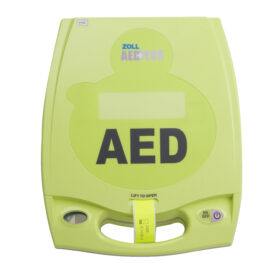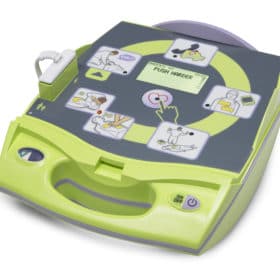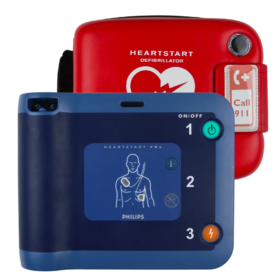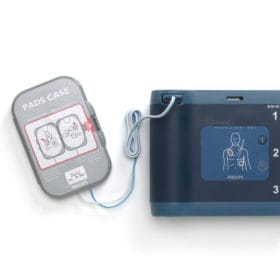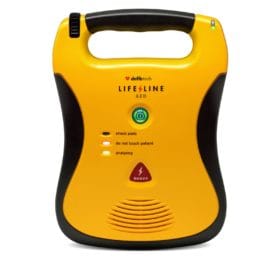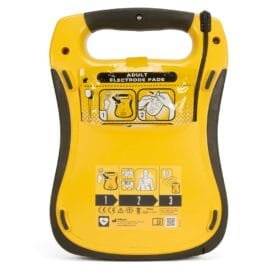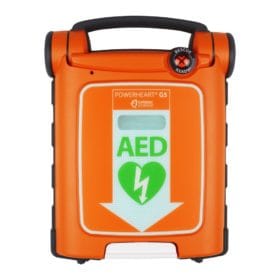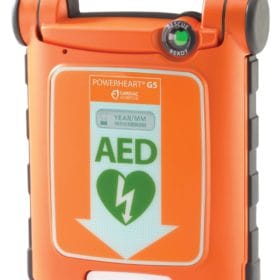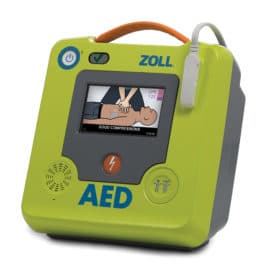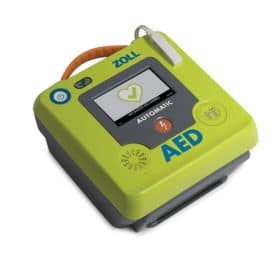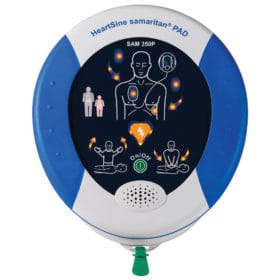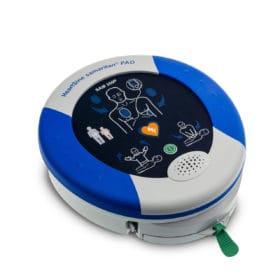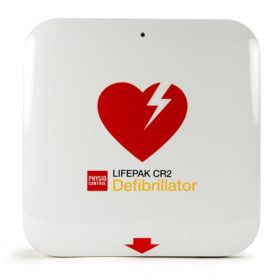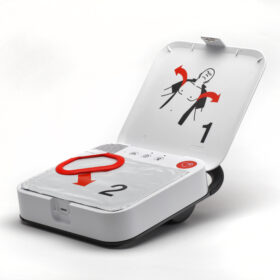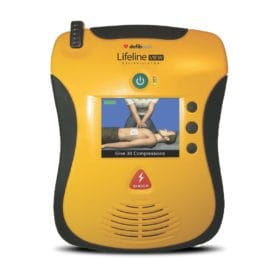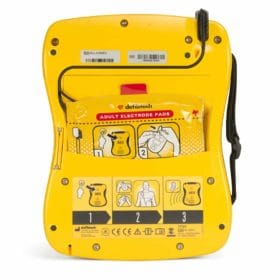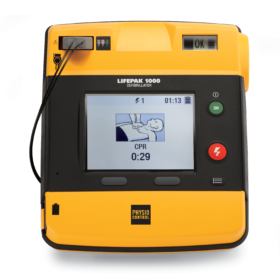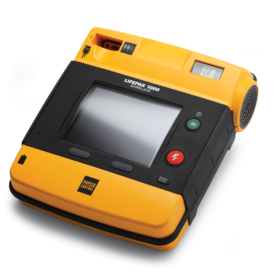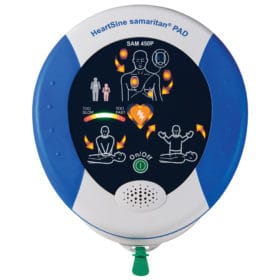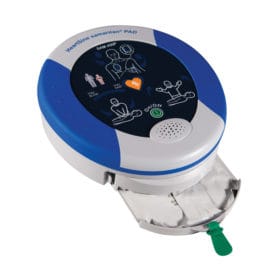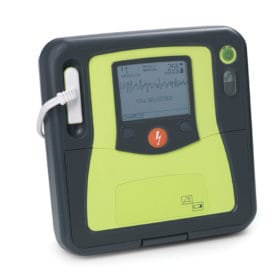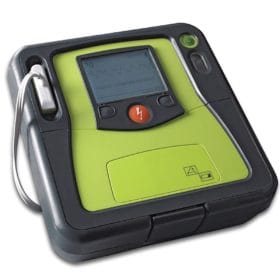- Your cart is empty
- Continue Shopping
Dental Office Defibrillators
Overview
The United States population is aging. It is estimated that by 2030, the number of people who are 65 and older will be 70 million. That equals approximately one in five Americans, or almost 20 percent of the population. Since older Americans have more demanding health care needs the medical community, including dentists, will need to start preparing for this shift by looking at how their offices are set up, what kind of services they offer, and what types of emergency plans they have in place.
Dentists are used to treating cavities and tooth aches but because of the rapidly aging American population, they will soon have to be prepared to treat sudden cardiac arrest (SCA) as well. Sudden cardiac arrest can happen to anyone, young and old alike, but the older a person is, the higher their chances of SCA are. Some states have started requiring that dental offices be equipped with automated external defibrillators (AEDs) for responding to SCA victims but even if yours doesn’t, being proactive and prepared for an SCA emergency can mean the difference between life and death for the victim.
Loretta McGuire of Moriches, New York, knows this all too well. She was waiting in the dental office of Dr. Craig Levine when she collapsed. Dr. Levine sprang into action. Dr. Levine, an oral surgeon, had his staff call 911 while he retrieved the AED. New York State requires that oral surgeons have AEDs in their offices and be trained on their use because they may administer anesthesia to their patients. Dr. Levine shocked Ms. McGuire once and she began breathing normally. The paramedics arrived shortly afterward and credited Dr. Levine with saving Ms. McGuire’s life.
Sudden cardiac arrest kills over 300,000 Americans every year. SCA is not the same as a heart attack. Heart attacks are generally caused by a blockage in one or more of the arteries of the heart; SCA is an interruption of the beating of the heart by a sort of “electrical problem.” Heart attacks usually have warning signs; sudden cardiac arrest can strike without warning. If help does not arrive within minutes, brain damage and sudden cardiac death can occur. Cardiopulmonary resuscitation (CPR) can be performed and will keep the blood flowing throughout the body and brain, but in the event of an SCA, the heart stops beating. If it is not restarted using an AED, the victim has little chance of surviving. For every minute that passes during an SCA, the likelihood that the victim will survive decreases by ten percent. Early defibrillation (a shock to the heart) is the key to the victim’s survival.
There have been numerous stories in the news about children and adults alike who have died during routine procedures at their dentist’s office. Some were under sedation, some had allergic reactions to medications, and some tragedies were unexplained. No one knows for sure that if these dentists had had a defibrillator on hand their patients would have survived, but why take the chance? Providing a level of care that exceeds a patient’s expectations, including having an automated external defibrillator available if needed, just makes sense.
Along with having an AED on hand to help ensure a dental patient’s safety it’s important to have a complete medical history of each patient on file, and be familiar with it. Updating the health/medical questionnaire each new patient is required to fill out (and/or having the patient fill out an addendum with each visit) with the following questions may be a lifesaver.
- Have you, or has anyone in your immediate family, been diagnosed with Long QT Syndrome?
- Have you, or has anyone in your immediate family, been diagnosed with Hypertrophic Cardiomyopathy?
- Have you ever been diagnosed with, or are you concerned that you might have, anorexia nervosa or any other eating disorder?
- Do you have an electrolyte imbalance?
- Have you experienced an unexplained weight loss or weight gain since your last dental visit or within the last six months?
- Is there any chance that you are dehydrated today?
- Are you on any new medications, or have you taken any of the following medications, since your last visit?
a. Tambocor
b. Lozol
c. DynaCirc, Uniretic, Cardene
d. Zithromax, Tequin, Levaquin, Avelox, Ketek
All of the above reasons can be causes for sudden cardiac arrest. They aren’t the only causes, and sometimes, no cause for an SCA is found. However, both Long QT Syndrome and Hypertrophic Cardiomyopathy are congenital heart defects that need to be watched and monitored carefully. Long QT Syndrome, especially, can be an inherited defect that often strikes multiple members of immediate families. Long QT Syndrome can also be acquired by taking certain types of medications such as Tambocor (an antiarryhthmia medication), Lozol (a diuretic), numerous antihypertensive medications, and some antibiotic medications, such as Zithromax, Tequin, and Levaquin, to name just a few.
Making sure to have a complete medical history and noting anything that may lead to sudden cardiac arrest is vitally important for a dental patient’s health and safety, as well as the dentist’s own reputation. Having an AED available, may mean the difference between life and death.
Please provide more information about AED Defibrillators for Dental Offices - View The Guide Now!
- ALS Monitor/Defibrillators
- Church Defibrillators – Automated External Defibrillator
- Dental Office Defibrillators
- Emergency Preparedness Kits – Office Defibrillator
- Golf Course Defibrillators
- Gym Defibrillators
- PAD Program – Public Access Defibrillator
- Police Defibrillators
- Professional Defibrillators – Fire and EMS Defibrillator
- School Defibrillators
Loading...
The best AED for your needs
Philips HeartStart OnSite AED M5066A
Philips HeartStart FRx AED with FREE Carry Case 861304
Defibtech Lifeline AED DCF-100
HeartSine Samaritan 350P/360P AED Defibrillator
Physio-Control LIFEPAK CR2 AED
Would you like these results sent to your email?
If so, just fill our your email address below and submit.

